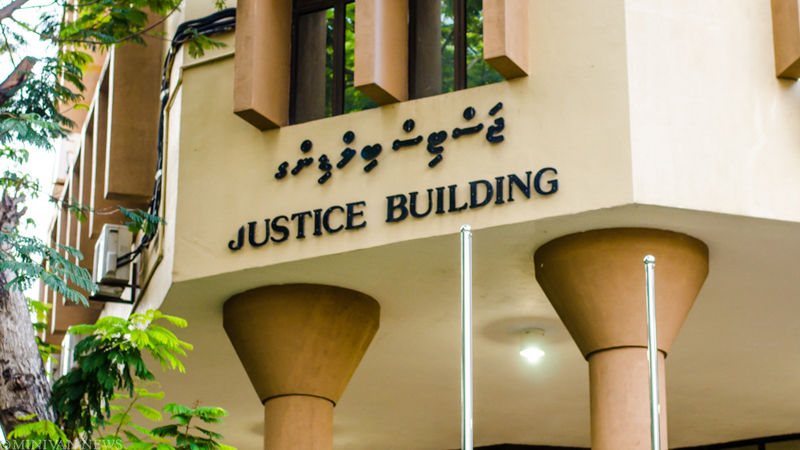Raajje TV latest to be banned from criminal court
The criminal court has banned opposition-aligned Raajje TV from observing trials, even excluding the popular station’s reporters from a hearing on an arson attack that destroyed its head offices down in 2013.

06 Mar 2016, 9:00 AM
The criminal court has banned opposition-aligned Raajje TV from observing trials, even excluding the popular station’s reporters from a hearing on an arson attack that destroyed its head offices in 2013.
Raajje TV is the latest media group to be banned from the court. Government-aligned news websites, Haveeru, V News and Avas, were also banned last week. A reason was not specified.
According to Raajje TV journalists, Azmoon Ahmed and Murshid Abdul Hakeem, court officials stopped them from entering the hearing even though they had been allowed to register for the hearing earlier this morning.
“An official told us that neither Raajje TV journalists nor its cleaning staff would be allowed inside, even if we were there in our personal capacity,” Azmoon told The Maldives Independent.
Become a member
Get full access to our archive and personalise your experience.
Already a member?
Discussion
No comments yet. Be the first to share your thoughts!
No comments yet. Be the first to join the conversation!
Join the Conversation
Sign in to share your thoughts under an alias and take part in the discussion. Independent journalism thrives on open, respectful debate — your voice matters.




